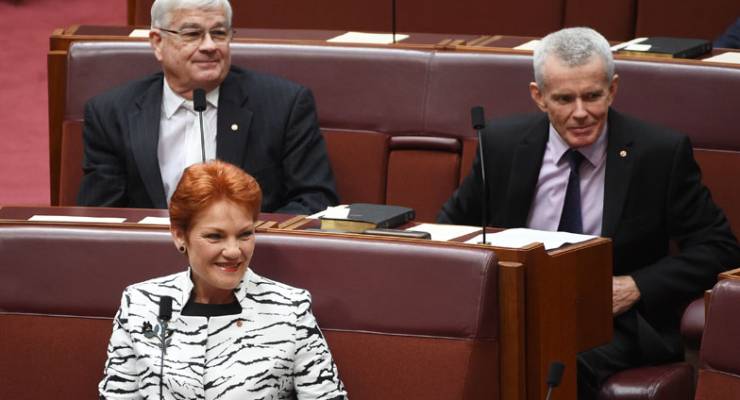
I’ve found the reaction of Malcolm Turnbull to the South Australia blackout too depressing to discuss, but I suppose it’s time to talk about it. Turnbull was depressing for three reasons.
First, there was the absurdity of failing to distinguish between transmission failures (pylons destroyed by storms) and intermittency. Reading the comments of Turnbull and others, it seemed as if the reasoning process was something like “wind bad for electricity system, so must cut back on wind power”. I gave up on expecting any substantive difference between Turnbull and Tony Abbott quite a while ago, but this silliness coming from the alleged “smartest guy in the room” was depressing.
[Wonder why the Coalition dislikes renewables so much?]
Then there’s the substantive political content. Turnbull and Energy Minister Josh Frydenberg have already any ruled out kind of carbon price, even the emissions intensity mechanism proposed by the Climate Change Authority (of which I’m a member) as an evolution of Direct Action. When doing this, Frydenberg justified his position by saying that an energy transition, presumably to renewables, meant that the government’s targets were achievable. Now even this fig leaf has been stripped away.
[Chris Uhlmann joins Barnaby in blaming wind energy for SA’s blackout. They are dead wrong.]
Finally, and worst of all, it’s one more step in the capitulation of right-wing neoliberalism to the rising tide of tribalism. In the Liberal-National-One Nation coalition I described a month or so ago, it’s now clear that One Nation with its associated faction within the government (Cory Bernardi, George Christensen, Abbott and others) has the upper hand. ONP Senator Malcolm Roberts tweeted to Turnbull that it was “Good to see you coming around to One Nation’s position“, and he was spot on. Doubtless he’ll have many more occasions for similar tweets in the future.
The polls suggest that the public reaction to all this is unfavorable, but unfortunately it’s a few months too late. We’re stuck with this for another three years.
*This article was originally published at John Quiggin’s blog







I fear there was nothing absurd in failing to distinguish between renewable energy and massive weather events. Frydenberg even had the common sense to preface his discussion of the former by disclaiming any link between SA’s immediate woes and their renewables, for subsequent deniability. It was quite deliberate, and what he – and the SMitR – wanted was simply to associate blackouts with the renewable policies of “Labor governments” in the mind of the punter. What’s depressing about that is (1) how dim they think the punter must be, and (2) that they think a massive disruption like this is the perfect occasion to have a go at Labor. Everything – absolutely everything – is now just fodder for political point-scoring, nodding to your constituency and striving for re-election. Labor are no better, I might add, which is surely why so many people are utterly disillusioned with politics in this country.
Turnbull not only come out as a genuine global warming skeptic using One Nation as a springboard he has also unveiled his agreement with pretty well all of Hanson’s social policies.
I don’t believe Hanson has hijacked the LNP energy policies but, as with immigration, permitted them to present their true nature and beliefs and to promote them as acceptable.
Really there is nothing new here, it is simply the LNP coming out.
I agree. I always thought Turnbull was different but it is quite clear his previous positions were just a front. We are now seeing now the real Turnbull and what a disappointment it is. As to linking the SA failure to renewables I think they have made a massive mistake, based on the “front bar test” at the local pub – a crowd that is definitely pro liberal thought Turnbull was an absolute d&%$head for suggesting it, expressing the view it is completely unfair to Jay Weatherill. – Go figure.
You *can* however, blame fossil fuels for the wind.
Greg hunt has a new spin on it, I’m amazed that it is not receiving scrutiny.
Any thoughts that Malcolm might be the smartest guy in the room, any room, now have to be shelved for lack of evidence.
He really doesn’t get it. I don’t think he has the intellect to decipher BS spin presented to him from reality.
“…. Having fallen down the far Right’s hole, Malcolm found himself beneath a glass table, upon which he could see what he supposed was the key to The Lodge, but no way to reach it. It was then that he noticed a small jeroboam of “Christensen’s Coolaid” sitting near by – with “DRINK ME” etched into the neck.
“What could it hurt?”
So he took a quaff, then a swig, then a guzzle, this power was going to his heads ….
Unfortunately, he realised too late that he was turning into Tosser …. he could never reach their table….